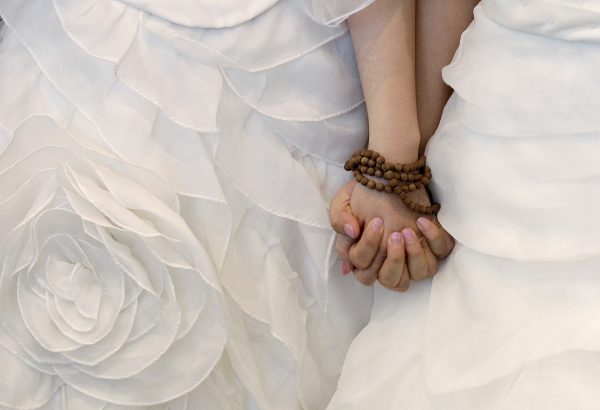But as anticipated by local activists, detractors have come out of the woodwork to stall the process, muddle the debate and obstruct the bills.
One of the legal arguments opponents have put forth against marriage equality is that it is not supported by international law. They claim international law limits marriage to between a woman and a man and does not recognise same-sex marriage as a human right.
Few serious international law scholars believe that using international human rights conventions, like the International Covenant on Civil and Political Rights or the European Convention on Human Rights, to oppose same-sex marriage would be legally persuasive. Even assuming international law does not mandate same-sex marriage, it does not follow that it bars it. Opponents have been unable to articulate why Taiwan should conform to jurisprudence that has not kept up with recent international development and why Taiwan cannot be a leader in human rights.
Another legal argument against marriage equality in Taiwan is that amending the Civil Code to include all couples would affect far too many associated family law rights that may or may not apply to same-sex couples, leading to uncertainty. Same-sex marriage opponents propose that a special civil partnership bill would be more appropriate. That way the legislative process would be smoother and the legal rights of same-sex couples would be clear and predictable.
Proponents of this approach claim that all couples would have the same rights regardless of gender and the difference would be in name only. But critics warn that this would create a ‘separate but equal’ regime.
That is not entirely accurate. A special bill would most likely enshrine a ‘separate and unequal’ situation. This is because any civil partnership scheme that grants full equality would run into the same purported problems that come from amending the Civil Code, which are overblown by opponents anyway as they can easily be resolved by following basic legal interpretation principles. There is therefore no strong legal justification for this path. According to some reports, Taiwan’s Ministry of Justice (MOJ) is considering a civil partnership bill that would only give one member of a same-sex partnership full parental rights over their children. Any supposed legal impediments to amending the Civil Code are just a smokescreen for giving same-sex couples fewer legal protections.
The main obstacle blocking marriage equality in Taiwan is not legal but political. Despite proclaiming her support for marriage equality during her successful presidential campaign, President Tsai Ing-wen has since asserted that she is not partial to either civil partnerships or marriage. She has been unwilling to publicly direct the MOJ to drop civil partnerships and focus on amending the Civil Code — the preference of most same-sex marriage advocates.
Tsai has chosen to stay on the side line as the debate has been hijacked by religious conservatives and self-proclaimed protectors of traditional values who call for a national referendum to determine whether LGBTQ people should be treated equally by the law. These opponents liken the LGBTQ community to cockroaches and believe that legalising same-sex marriage would have a domino effect, making society powerless to stop people marrying. She has remained silent as advocates of ‘family values’ target marriage equality activists. Even if marriage equality were to be realised this time around, which appears increasingly unlikely, the LGBTQ community will not easily forget Tsai’s betrayal.
While the legislative process has been a mess, advocates may find some solace in the fact that it is not the only viable avenue to marriage equality. Two cases challenging gender discrimination in the marriage provisions of the Civil Code are pending in the Constitutional Court. If all 15 Justices were to decide on the case, at least 10 would have to find the law unconstitutional for it to be struck down. There is speculation that there may be just enough votes, assuming DPP legislator Yu’s husband does not recuse himself.
But even if the Constitutional Court finds the current Civil Code unconstitutional, it may still find civil partnerships to be an acceptable alternative to marriage. This would take the process back to square one.
While the road to marriage equality in Taiwan has been filled with political obstacles, many of them erected by purported LGBTQ allies, the judiciary may still offer some hope as the least political branch of the government. At the very least, the arguments against same-sex marriage adduced in the Court would have some rational basis that could be countered with fact and reason.
M. Bob Kao is a PhD Candidate at the Centre for Commercial Law Studies, Queen Mary University of London and a former public interest lawyer in California.

